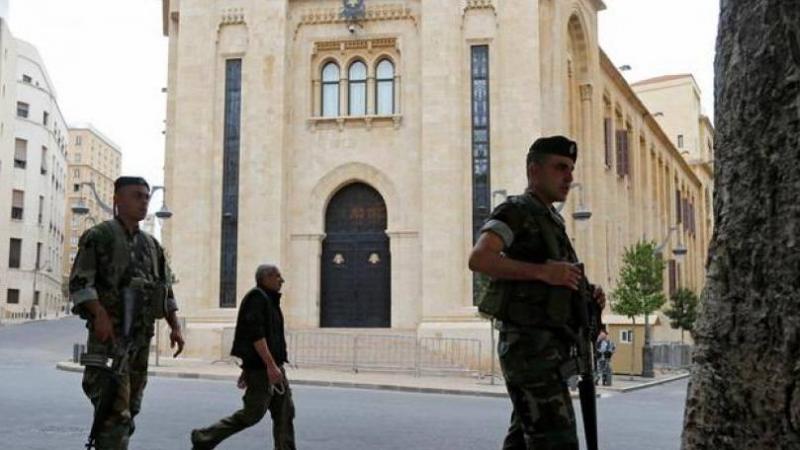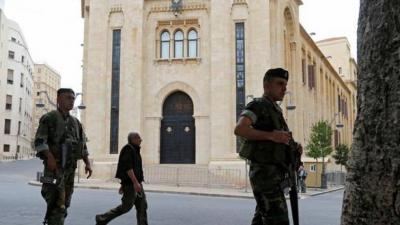The parliamentary meeting that gathered several independent MPs along with their colleagues from change-oriented forces and the “Kataeb” party is part of the efforts to form a parliamentary bloc that will take on the responsibility of agreeing on a unified mechanism to engage with legislative sessions that the parliament is preparing for, which are intended to discuss and approve projects and proposals listed in the criteria set by the International Monetary Fund as a basis for negotiating assistance to help Lebanon recover from its economic and financial crises.
While the MPs who met under the parliament's roof are counting on the participation of their colleagues in their second founding meeting scheduled for next Tuesday, others who were not invited and do not belong to the resistance axis or to the former "14 March" forces have raised several questions, the most prominent of which are: Why were these individuals excluded from the meeting while it was decided to include MPs from the “Kataeb” party? And is it true that some MPs affiliated with the change-oriented forces refrained from attending on the pretext that the invitations included MPs connected to the "14 March" forces? They also asked: Why were the MPs belonging to the "Progressive Socialist Party" and the "Lebanese Forces" excluded from the invitations despite their communication with colleagues from the change-oriented forces?
The question also extends to the differing opinions within the change-oriented forces, as acknowledged by MPs Mark Daugh and Waddah Al-Sadiq, in contrast to MP Paula Yacoubian’s insistence on linking her attendance to a prior agreement on the meeting's agenda and political program.
Notably, on the sidelines of the first parliamentary meeting, the attendees refrained from addressing the presidential election issue, not only because there are more than one potential candidates for the presidency among them, which would lead to divisions among the participating MPs, but also because they believe that there is no justification for rushing the stages and that there is a need to wait to monitor developments in the region, starting with the resumption of negotiations on the Iranian nuclear file and the possibility of reaching an agreement on demarcating the Lebanese-Israeli maritime borders.
Thus, these MPs' decision to delay remains relevant so that they can build on the situation, especially since the lingering hint by some of the change-oriented MPs to come to an agreement on naming their candidate for the presidency will not be feasible in the near future, given the advice given to them not to act unilaterally, allowing room for the possibility of uniting opposition forces around a consensual candidate representing them, provided that they unify instead of remaining scattered among a fragmented majority, while the MPs belonging to the resistance axis leave their unity to the Secretary-General of Hezbollah, Hassan Nasrallah, in consultation with the Speaker of Parliament, Nabih Berri.
The question remains: Will this parliamentary meeting lay the groundwork for establishing a third parliamentary force in opposition to the blocs united under the resistance axis and the ones previously belonging to the "14 March" forces? Although the inclusion of MPs from the "Kataeb" party raised more than one question mark about the reasons for granting a “political pardon” to a party that participated in the government alongside the "Progressive" and "Forces"?
It may be premature to assume that the third parliamentary bloc can navigate political pitfalls to unite its position on the presidential entitlement when the time comes, with the country nearing entering this phase starting next September. Furthermore, the change-oriented forces are still in the process of activating their role in parliament, which will not be complete unless they decide to reach out to other parliamentary factions affiliated with the opposition that opposes the resistance axis, without disregarding that the "Progressive" may distinguish itself through the "Democratic Parliamentary Meeting" in some of its positions, even though the only legislative session for the parliament since the parliamentary elections did not lead to any variance.
Thus, the third parliamentary forces, if joined by a new batch of independent MPs, stand before a serious test of their resilience in facing the presidential entitlement, as the necessities compel them, as well as others in the opposition, to fortify themselves to confront all potential scenarios that could arise from the presidential entitlement, especially if its completion falters, which would plunge the country into a vacuum no one can predict its end, and whether it will persist for a long time or whether the presidential elections will occur, albeit after a long wait.
This is with regard to the establishment of a third parliamentary force that excludes the invitation of MPs orbiting political Harirism to join it, despite their communication cut-off with former Prime Minister Saad Hariri, who will not budge from his decision to suspend his political work, and no recorded communication has occurred with the MPs associated with him after they were forced to seek a coordinating formula to gather themselves into a unified parliamentary bloc.
In this context, it has been reported that these MPs have made progress towards preparing to hold a meeting for the Sunni sect MPs under the direct auspices of the Grand Mufti of the Lebanese Republic, Sheikh Abdul Latif Derian, aimed at discussing a formula to fill the void stemming from Hariri's reluctance to engage with daily political affairs, especially since the Sunni component in parliament is almost ineffective due to the fragmentation affecting it.
The "Middle East" learned that MP Ihab Matar had initiated communication with his fellow Sunni MPs in a bid to reach common grounds that would ensure their necessary presence in parliament, and he communicated in this regard with Mufti Derian, who assured him of his support for efforts aimed at unity and shared vision, but left the matter to the MPs, indicating that he does not intend to invite them to the Dar al-Fatwa amid the divisions among them, considering that the house is for everyone and remains at an equal distance from them, and thus prefers not to be a witness to their fragmentation.
Therefore, the distribution of Sunni MPs among various blocs and parliamentary groups will likely continue unless unseen interventions occur pushing towards their agreement on a minimum program to restore their role in parliament, which still falls short of the required level.




